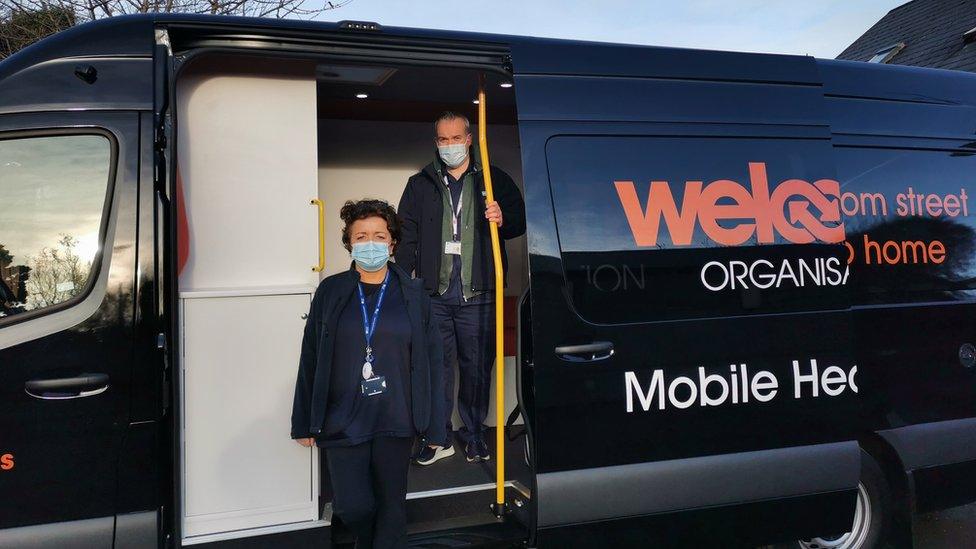Homeless healthcare: 'I'd probably be dead without specialist nurse'
- Published
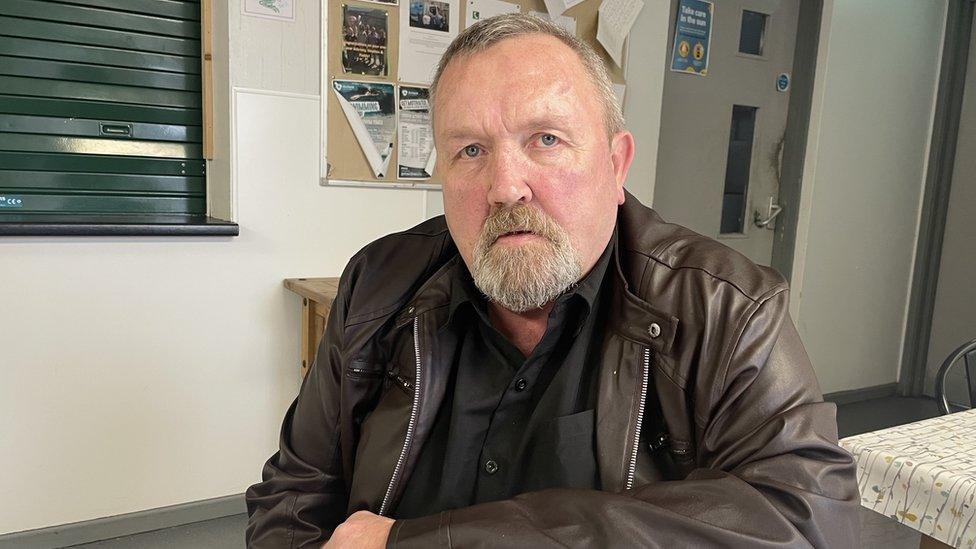
Paddy arrived at the Simon Community in Armagh in 2021 where he met the Inclusion Health Nurse
A man who was left homeless while struggling with addiction has said he would "probably be dead" if not for a nurse specialising in homeless healthcare and the Simon Community.
Inclusion health nurses are now in every health trust across Northern Ireland.
They work in hostels and with community organisations to provide essential healthcare to those who are homeless.
This way, these nurses can reach some of the most vulnerable in society.
Paddy, who is in his 60s, arrived at the Simon Community hostel in Armagh in December 2021 after being evicted from his home in Kilkeel, County Down, due to excessive drinking.
He had struggled with alcohol addiction for over 20 years.
With the help of the Southern Health Trust's inclusion health nurse and those working in the hostel he was able to manage his addiction and has been sober since June 2022.
'I couldn't have done it without her'
"I've been in many bad places with drink and I didn't care if I ever got a bite to eat," he explained. "As long as I had drink and cigarettes, that was it."
He has described the intervention by the hostel nurse and staff as life saving.
"I'd probably be dead with the way I was drinking," he added.
On top of his addiction, Paddy had developed health issues which worsened as a result of his drinking including a broken arm which went untreated for over a year.
"I told the nurse my arm was broken, I think it was broken for years," he said.
"She found out all about it and got me talking to a doctor again and I got it operated on. I needed 14 pins in it.
"I couldn't have done that without her."
Regional healthcare services
The Public Health Agency developed a regional inclusion health model in 2018 with the aim of supporting the complex needs of people who experience homelessness and bridging the gap between community and hospital care.
An inclusion health hub was first set up in Belfast in 2019, followed by two new mobile clinics in the city and in the north west.
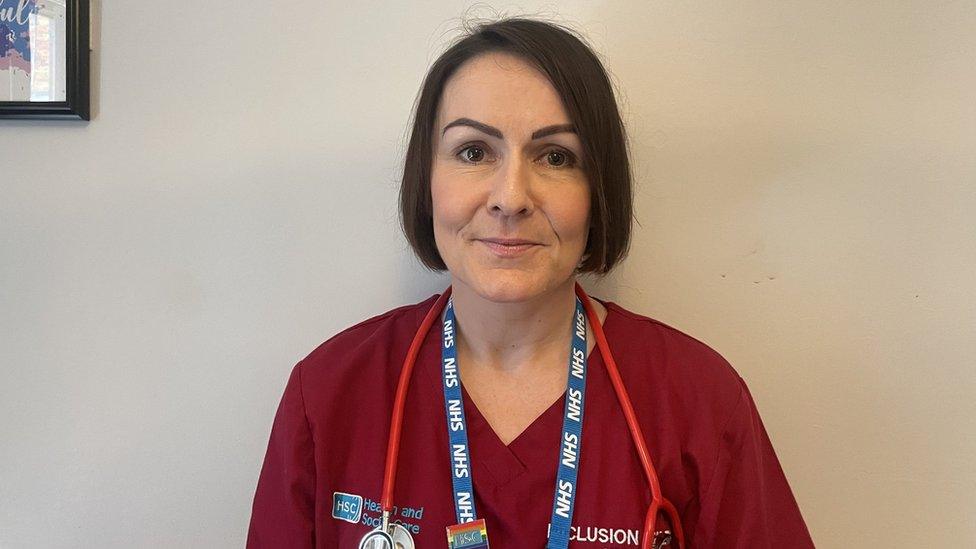
Lisa said it is important to catch homeless patients who may have fallen through the gaps
Dedicated nurses were appointed in the Southern, South Eastern and Northern Health Trusts in 2022, targeting those in smaller, rural communities, and another inclusion health hub was launched in Londonderry in June.
"There are now eight homeless health nurses - four in Belfast that work as part of a multi-disciplinary team and one in each of the other trusts."
Lisa Ewart is a nurse in the South Eastern Health Trust and holds weekly and monthly drop-in clinics at various hostels, Women's Aid shelters and community organisations.
"Every day is different," she told BBC News NI.
"You would see people who have very poor access to health services due to their transient lifestyle so the first port of call is getting them GP registration.
"You could be looking at trying to manage someone's diabetes and they maybe don't have insulin. Prescription management is a huge thing and medicines.
"It's really important to catch those service users and to try and get them engaging with services locally."
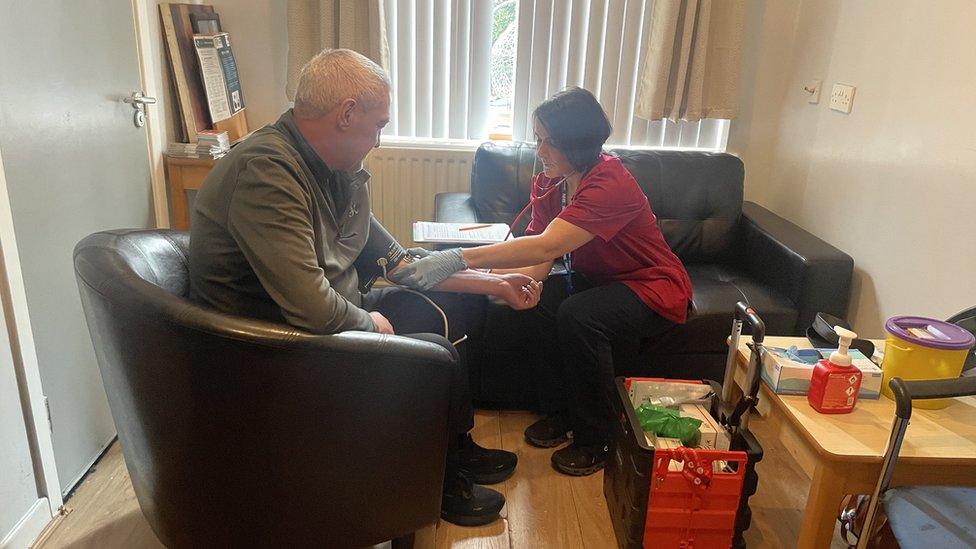
Lisa said every day is different in her line of work
The Belfast and Western Health trusts also have support staff to provide podiatry and dental services.

Homelessness in Northern Ireland
According to the most recent statistics from the Department for Communities (DfC) 5,316 people were accepted as statutorily homeless between July to December 2023.
The top three reasons for presenting as homeless were accommodation not reasonable, sharing breakdown/family dispute and loss of rented accommodation.
As of January 2024, there were 4,556 households living in temporary accommodation.

Cost of Living accelerating homelessness
Ms Ewart said she was seeing more and more people becoming homeless because of issues such as family breakdowns.
"There's a huge number of people now who have lost their tenancy and ended up homeless and I guess with the cost of living crisis that's accelerated things," she said.
"Homelessness is in every aspect of your community, it's everywhere and it's important to open people's eyes to the prospect that it's around their corner and it's in their communities."
Georgie McCutcheon, the well-being practitioner with the Simon Community, said the nurses went "above and beyond".
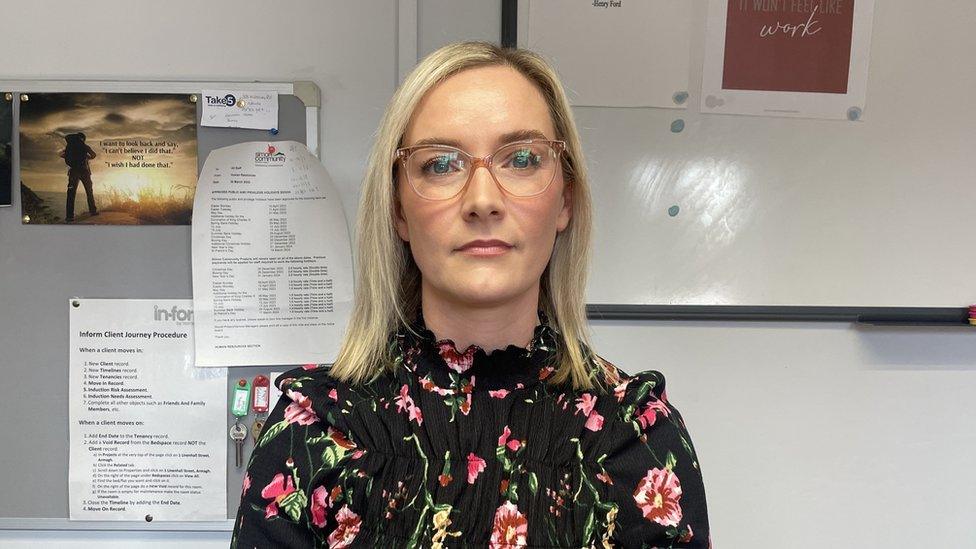
Georgie McCutcheon said the nurse provision showed users they are worthy of being cared for
"So many clients have felt stigmatised as marginalised members of the community and the nurses coming directly to them breaks down those barriers and shows that they are worthy of being cared for and treated," she said.
"It also reduced the likelihood of small ailments becoming bigger health issues with their medical intervention."
Paddy is now living in fold accommodation and remains in contact with the inclusion nurse in the Southern Health Trust.
He said he could not find enough words to express his gratitude for the help from the nurse and the Simon Community.
"Words couldn't say it," he continued.
Related topics
- Published18 October 2018
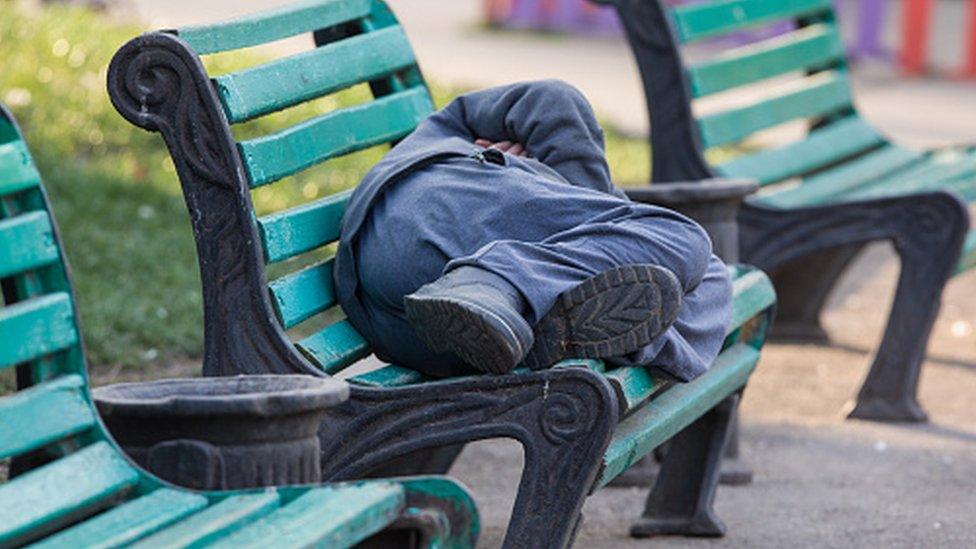
- Published13 February 2022
